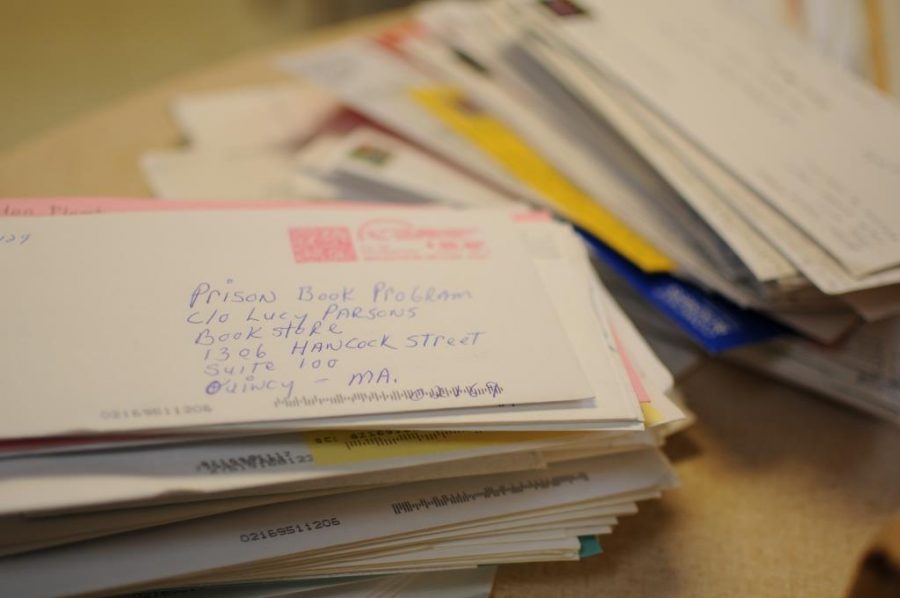Quincy Nonprofit Provides Books to Prison Inmates Across the Country
Photo Courtesy of prisonbookprogram.org
Volunteers at the Prison Book Program fulfill inmates’ book requests, which come in the form of letters.
April 22, 2020
The Prison Book Program (PBP) is a small organization that strives to educate incarcerated people of all ages and backgrounds through the charitable donation of books. Located in Quincy, MA, this non-profit calls upon volunteers to fulfill prisoners’ requests for books, which come in the form of letters.
Created by the Red Book Store Collective in Cambridge in 1972, PBP initially distributed politically progressive literature to inmates. Substandard education and minimal access to literature have been widespread problems for prisoners across the country, and the founders sought to pursue a possible solution by receiving donated books and distributing them. The program itself is not directly connected to a prison—instead, the volunteers add to a makeshift library in the basement of a church and send books to inmates in prisons across the country. Despite this humble setting, the light chatter between members and the pleasant drone of ruffled papers contributes to a friendly and communal environment. Lee Collins, a regular volunteer who runs the library, comments on her favorite parts of helping at the PBP: “Some letters are really moving, as the writers might describe how valuable books have become to them or might share the plans they’re making once they’re released … By sending books, I feel as if we are humanizing the criminal justice system: recognizing the humanity of people on the inside, showing them respect, reducing the cruelty of the system just a little bit.”
In a typical volunteer session, a letter is opened by a “picker,” who will sort through the books, which are hand-organized by genre and range from Webster dictionaries to Japanese manga. Newcomers get a brief introduction lasting around ten minutes and are then free to open letters and get to work. Once a request is fulfilled, the books are packaged and put through a series of other tests, such as checking if they meet the legal requirements listed on the envelope. The requirements differ between institutions and are usually put in place to prevent the promotion of overly violent or sexual themes. There are multiple jobs that volunteers can do, according to Collins, such as picking books, invoicing them, packing them, or operating quality control.
In an archived letter on the PBP website, an inmate from the United States Penitentiary Marion gave his opinion on the organization’s deeds: “Books allow prisoners to set our minds free; to expand our minds, whereas our bodies are confined … [we can] articulate better when we try to communicate with each other and the outside world.”
The Prison Book Program reaches out to those who are not fortunate enough to have access to books and gives them a chance to educate themselves. Despite the organization’s accomplishments, help is always welcome, so the PBP calls upon volunteers of all ages to help out. “I appeal to [the Prison Book Program] to continue donating and sending books to inmates,” an inmate in SCI-Houtzdale Pennsylvania writes. “In your own way, you do more to rebuild society and families than all the prisons in the world. There are no bars in our minds, only in the hearts of men. Thank you.”
More information can be found at the Prison Book Program website or by emailing [email protected]










